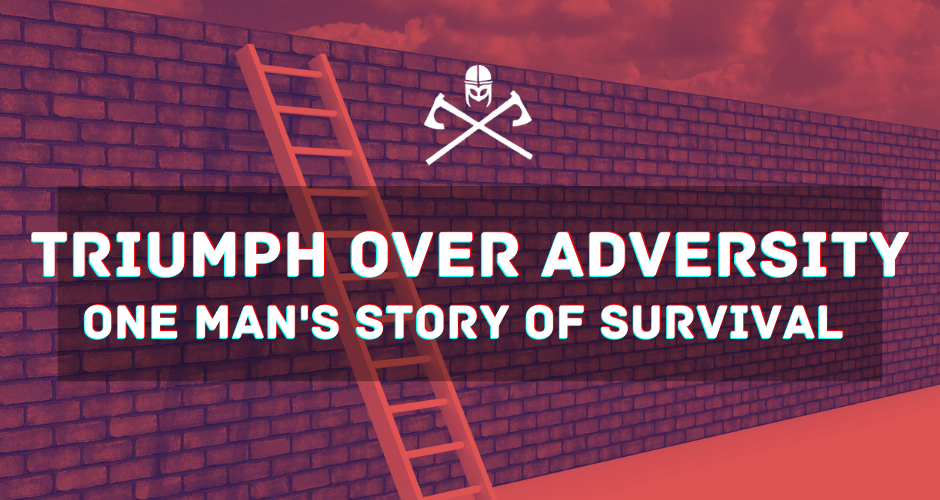
by Gene Crawford | Dec 15, 2025 | Podcast
In this powerful Warrior Mindset episode, we explore the idea of breaking barrier; physical, psychological, cultural, and institutional. From Miyamoto Musashi to Harriet Tubman, Bass Reeves to Kyle Maynard, we dissect what makes a true warrior: relentless discipline, adaptive thinking, and the refusal to accept limits.
These warriors didn’t just fight battles, they redefined the battlefield. Whether you’re navigating internal struggles or societal expectations, this episode challenges you to confront what’s holding you back and break through it with clarity, purpose, and grit. Adapt faster. Endure longer. Think deeper. This is how legends are made.
(more…)

by Gene Crawford | May 13, 2025 | Blog
The morning alarm blares, jarring you awake from restless sleep. Your to-do list runs through your mind before your feet even hit the floor. Emails pile up, responsibilities tug at you from every direction, and the weight of it all feels crushing. You tell yourself to push through, but deep down, exhaustion lingers, and stress has become your constant companion.
If this sounds familiar, you are not alone. Modern life moves fast, and between work, family, and personal challenges, it is easy to feel overwhelmed. The good news is that small, intentional actions can have a profound impact on your mental health. These simple yet powerful strategies can help you regain balance, quiet the noise, and nurture your well-being.
Move Your Body, Free Your Mind
You step outside, the crisp air filling your lungs. The tension in your shoulders begins to ease as your feet hit the pavement in a steady rhythm. With each breath, stress loosens its grip.
Exercise is one of the most effective ways to support mental health. Moving your body releases endorphins, the brain’s natural mood boosters, and reduces stress hormones. It does not have to be intense. A brisk walk, a yoga session, or even stretching in the morning can make a difference. Research shows that regular physical activity helps ease anxiety and depression while improving overall mood.
Start small. Take the stairs instead of the elevator, dance to your favorite song, or go for a walk after dinner. The key is consistency, not intensity.
Eat Clean, Think Clear
You take a bite of fresh, ripe berries, their sweetness bursting on your tongue. Alongside them, a handful of nuts provides a satisfying crunch. Your energy feels stable, your mind clear.
What you eat affects how you feel. Highly processed foods, excessive sugar, and caffeine crashes can contribute to mood swings and fatigue. Instead, nourish your brain with whole foods like lean proteins, leafy greens, healthy fats, and complex carbohydrates. Omega-3s from fish and nuts, antioxidants from fruits and vegetables, and fiber-rich foods support brain health and help regulate emotions.
Try making small swaps. Choose water over soda, snack on nuts instead of chips, and add more colorful vegetables to your plate. Your brain will thank you.
The Power of Restorative Sleep
The room is dark, cool, and quiet. You sink into your pillow, your body heavy with relaxation. Your breathing slows, your mind unwinds, and deep sleep carries you into the night.
Quality sleep is essential for mental well-being. Without it, stress becomes harder to manage, emotions feel overwhelming, and focus disappears. Creating a bedtime routine can improve sleep quality. Dim the lights an hour before bed, avoid screens, and establish a calming ritual such as reading or deep breathing.
If sleep eludes you, try maintaining a consistent schedule, keeping your room cool, and limiting caffeine in the afternoon. Prioritizing rest is not a luxury, it is a necessity.
Relax, Breathe, and Be Present
You close your eyes, inhale deeply, and exhale slowly. The tension in your forehead softens. For a moment, the chaos of the world fades, and peace takes its place.
Meditation, deep breathing, and mindfulness practices help quiet an overactive mind. Just five minutes of slow, intentional breathing can lower stress levels and increase focus. Meditation does not have to be complicated. Sit in stillness, focus on your breath, or listen to calming sounds.
If meditation is not your style, find other ways to unwind. Take a bath, sip tea, listen to music, or step outside and feel the sun on your skin. Moments of relaxation add up, creating a sense of balance.
Get Organized, Gain Control
The cluttered desk mirrors the clutter in your mind. Papers pile up, emails go unanswered, and stress builds. You take a deep breath, clear a small space, and suddenly, clarity returns.
When life feels overwhelming, organization can create a sense of control. A simple to-do list, a decluttered workspace, or a structured routine can reduce anxiety and make challenges feel more manageable.
Try starting small. Write down three tasks for the day, clean out a drawer, or use a planner to map out your week. Even small acts of organization can bring peace of mind.
Practice Gratitude, Shift Your Perspective
You pause for a moment and think about something good. Maybe it is the warmth of the sun on your skin, a kind text from a friend, or the aroma of morning coffee. A sense of calm washes over you.
Gratitude is a powerful antidote to stress and negativity. When you focus on what is going right, your brain shifts from scarcity to abundance. Keeping a gratitude journal, saying thank you more often, or simply taking time to appreciate small joys can rewire your mindset toward positivity.
Each day, try listing three things you are grateful for. They do not have to be grand. Even the smallest moments of beauty count.
Stay Connected, Build Your Support System
Laughter fills the air as you sit with a friend, sharing stories and memories. For a while, the weight of the world feels lighter. You are reminded that you are not alone.
Social connection is a cornerstone of mental well-being. Whether through family, friends, or a community, strong relationships provide comfort, encouragement, and a sense of belonging. If you feel isolated, reach out. Call a friend, join a group, or simply start a conversation with someone new.
If making friends feels challenging, start by engaging in activities you enjoy. Volunteering, joining a hobby group, or even chatting with a coworker can open the door to meaningful connections.
Small Steps, Big Impact
Life will always have its challenges, but how you care for yourself determines how you handle them. Supporting your mental health does not require drastic changes, just small, consistent actions. Move your body, fuel yourself with nourishing foods, get quality sleep, take moments to breathe, get organized, practice gratitude, and stay connected.
You are not alone in this journey. Every step you take toward self-care is a step toward resilience and well-being. Start today, and give yourself the kindness and care you deserve.
Which of these practices resonates most with you? Share your thoughts in the comments.





